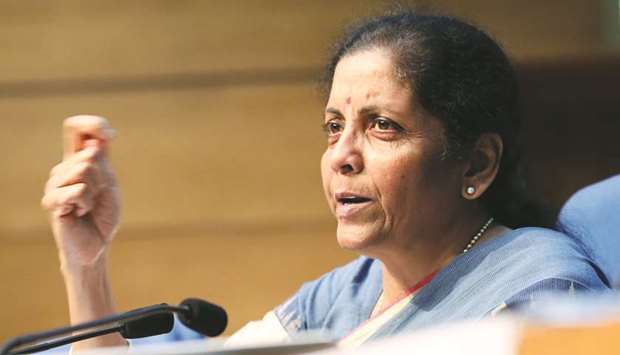India has announced plans to lease state-owned assets to the private sector in a bid to raise Rs6tn rupees ($81bn) to repair public finances battered by the pandemic and fund new infrastructure.
Asia’s third-largest economy was left reeling from a Covid-19 surge and strict lockdowns enforced to contain the virus, creating a significant budget deficit and pushing millions into poverty.
Private firms will be able to lease on a long-term basis over 26,000kms of roads, power transmission lines, hydroelectric and solar power assets, phone networks, and nearly 15,000 telecom towers, under the plans just announced.
Also up for grabs will be some 8,000kms of natural gas pipelines, 15 railway stations, railway lines, 25 airports, and a number of sports stadiums, according to the four-year plan dubbed the National Monetisation Pipeline.
“The ownership of the assets remain with the government and there should be mandatory hand back (to the state),” Finance Minister Nirmala Sitharaman said.
“So by bringing in private participation in this, you will be able to monetise it better and ensure further investment in infrastructure building,” she said.
Proceeds will help replenish government finances squeezed by India’s worst recession since independence as a result of the pandemic, and to fund new infrastructure projects.
India’s opposition hit out at the plans, with Congress party chief Rahul Gandhi saying “assets created over seven decades (are) being gifted to cronies.”
“The future of India is being sold,” he said.
India enforced one of the world’s toughest lockdowns in 2020 when the pandemic began, leaving millions without work almost overnight.
Restrictions were then steadily eased but re-imposed in April in a devastating second wave that overwhelmed hospitals.
Prime Minister Narendra Modi’s government had previously announced plans to raise billions of dollars through the privatisation of Air India, Bharat Petroleum, and a share sale of a major insurer.
The planned sales are in line with Modi’s strategic divestment policy, under which the state will retain presence in only a few identified sectors with the rest privatised.
“The government does own very valuable assets and this should see investor interest,” said Sonal Varma, economist at Nomura Holdings in Singapore. “This will be like an asset exchange, where the government sells its infrastructure assets and uses the revenue earned to invest in other infrastructure priorities that it has set.”
The monetisation plan, announced by Sitharaman in her annual budget speech, will serve as a medium-term road map for the government’s asset sale initiative, state-run think tank NITI Aayog said in a statement.
The income from the asset sales is key to narrowing the nation’s budget deficit, which Sitharaman expects to be 6.8% of the gross domestic product in the financial year that began April 1, from 9.3% in the previous year.
Several economists expect the country will miss that target due to economic disruptions caused by a second wave of the Covid-19 pandemic.

(File photo) India Finance Minister Nirmala Sitharaman.
